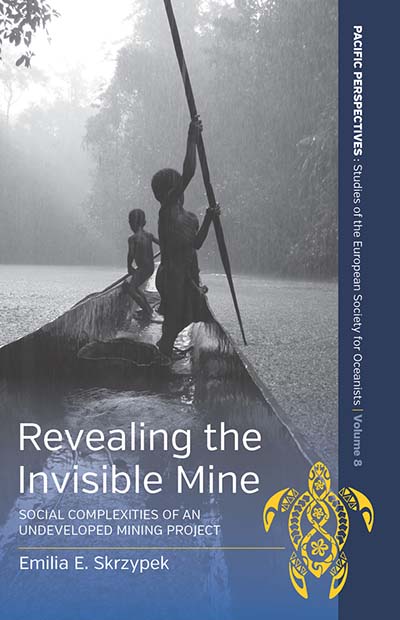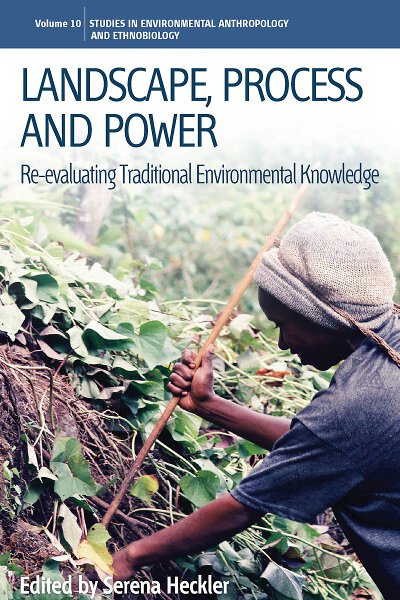-

A boy from Paupe watching the company’s activities at the airstrip. Photograph by the author.
-

Riverbank in Aston. Photograph by the author.
-

A large dugout canoe. Fishing trip to one of Frieda’s numerous creeks. Photograph by the author.
-

Pastor Jacob’s house in Seligeme. Photograph by the author.
-

Interior of pastor Jacob’s house in Seligeme. Photograph by the author.
-

View of the Frieda River from Dinah’s banana garden above the SBU Camp. Photograph by the author.
-

Pastor Jacob Aiyapanai. Photograph by the author.
-

A flag pole in Aston displaying the PNG flag. Photograph by the author.
-

‘We watch movies, we go into town, we know how it is...’ Photograph by the author.
-

Dinah scaling fish during a successful fishing trip. Photograph by the author.

Series
Volume 8
Pacific Perspectives: Studies of the European Society for Oceanists
See Related
Anthropology JournalsEmail Newsletters
Sign up for our email newsletters to get customized updates on new Berghahn publications.
Revealing the Invisible Mine
Social Complexities of an Undeveloped Mining Project
Emilia E. Skrzypek
252 pages, 20 illus., bibliog., index
ISBN 978-1-78920-856-6 $135.00/£104.00 / Hb / Published (October 2020)
eISBN 978-1-80758-496-2 eBook
Reviews
“There is really nothing quite like Skrzypek’s volume in print... Skrzypek has done an impressive job of bringing [her ideas] together in a rich ethnographic context.” • Dan Jorgensen, Western University
“This is an outstanding ethnography. It fills a major gap in the literature and our understanding of the deep social and cultural changes that occur as local communities anticipate large-scale resource extraction on their lands. A must read or anyone who wants to make sense of transformations that arise after mining actually begins.” • Nick Bainton, The University of Queensland
Description
Exploring the social complexities of the Frieda River Project in Papua New Guinea, this book tells the story of local stakeholder strategies on the eve of industrial development, largely from the perspective of the Paiyamo – one of the project’s so-called ‘impact communities’. Engaging ideas of knowledge, belief and personhood, it explains how fifty years of encounters with exploration companies shaped the Paiyamo’s aspirations, made them revisit and re-examine their past, and develop new strategies to move towards a better, more prosperous future.
Emilia Skrzypek is a social anthropologist based at the University of St Andrews. Her research to date has largely focused on Papua New Guinea where she works on issues related to broadly conceived resource relations and interdependencies.
Subject: Anthropology (General)Political and Economic AnthropologySustainable Development Goals
Area: Asia-Pacific
Contents
Download ToC (PDF)



